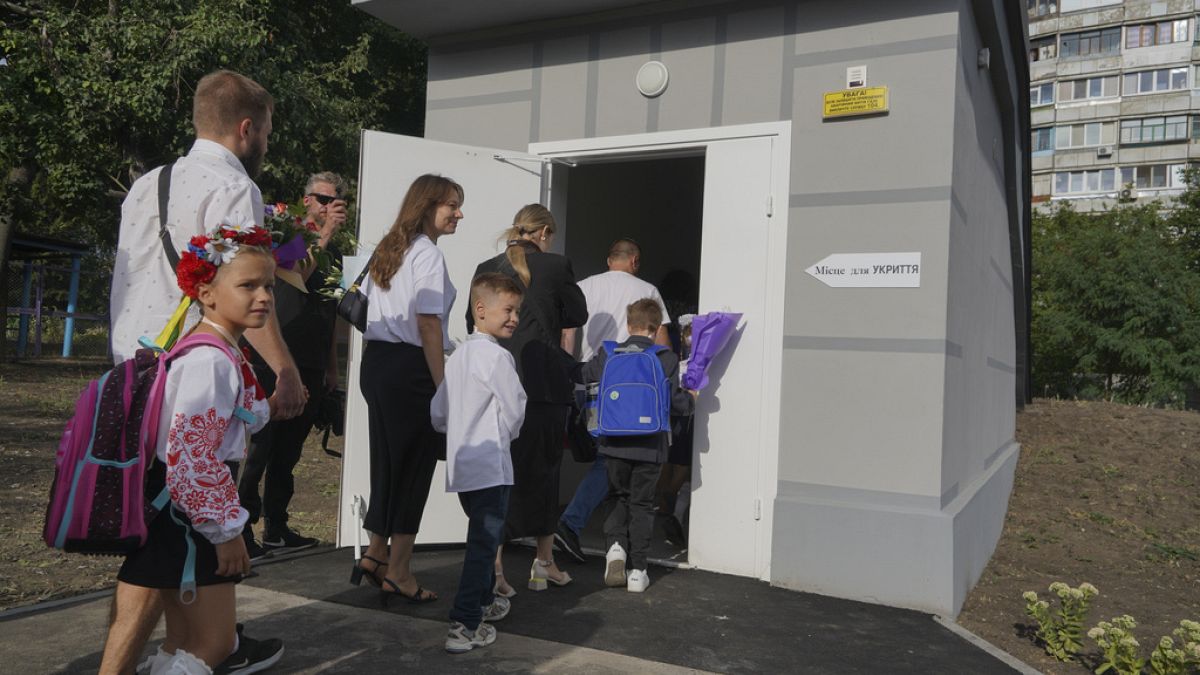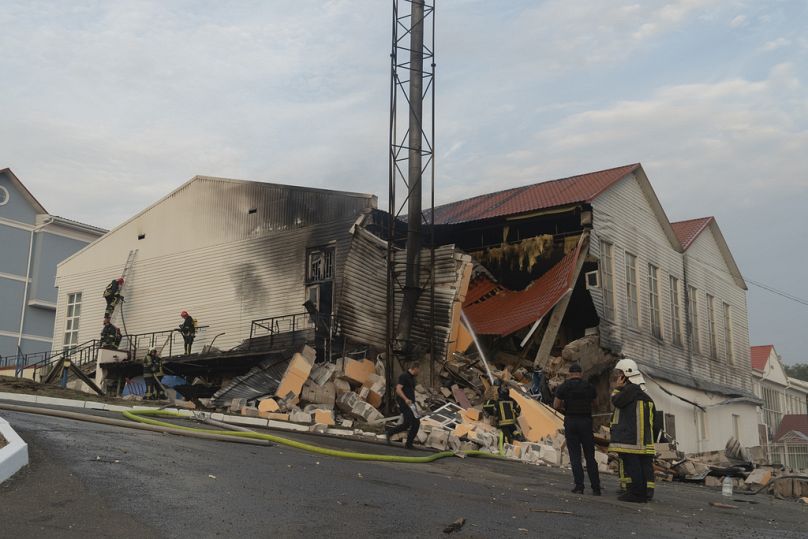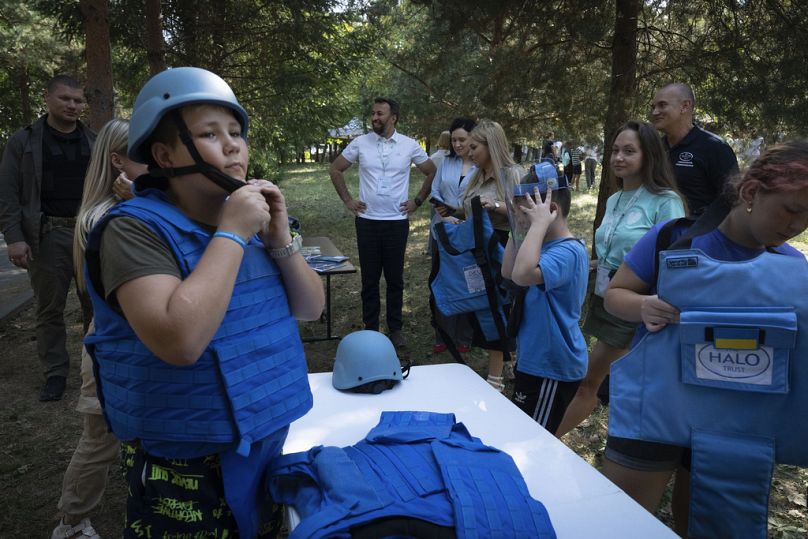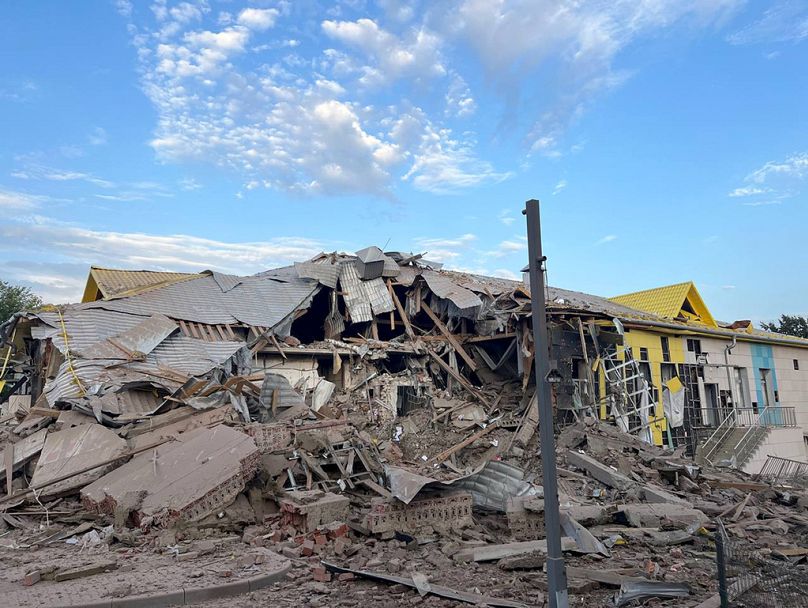
It has been a challenging past few years for Ukrainian children and their access to education, as first they faced the COVID-19 pandemic, followed by Russia’s invasion of Ukraine. For some at the age of seven, it will be their first time to set foot in a school, whilst others are taught in bomb shelters.
On Monday, Ukrainian children were supposed to return to school, but some found their classes cancelled due to damage from a series of explosions across Ukraine and in the capital, Kyiv.

According to the Interior Ministry, debris from intercepted missiles and drones fell in every district of Kyiv, damaging two nurseries.
In response, some classes are now being held in bomb shelters.
Ukrainian President Volodymyr Zelenskyy and Dutch Prime Minister Dick Schoof visited Zaporizhzhia, a city near the front lines. They attended the opening of the academic year at an underground school, where classes are being conducted in a bomb shelter.
Schoof took the opportunity to gift several copies of Dutch children’s books to Ukrainian students, commenting on it he said, “We had a number of Dutch books translated, including ‘Jip en Janneke’. So I was able to hand that out to the six and seven-year-olds. That was really nice, to be able to give something, that almost every Dutch person grew up with, to this school.”
During Schoof’s first visit to Ukraine, he also reiterated the country’s stance on the war and its entire support to Ukraine, allocating more than €200 million to Ukraine’s energy infrastructure.

The past few years have been deeply disruptive for Ukrainian children. First, the COVID-19 pandemic forced them into online learning, and then the war displaced millions.
Many Ukrainians who fled to neighbouring Poland have continued their Ukrainian studies remotely, without ever returning to a traditional classroom.
However, as the new school year began on Monday, a new Polish law now requires Ukrainian refugee children to attend school. Families who don’t comply risk losing the 800 zloty (187€) monthly benefit that citizens and refugees receive for each child under 18. The only exception is for students entering their final year of high school, as Poland’s Education Ministry acknowledges the difficulty of mastering the Polish curriculum and language in time for graduation exams in the spring.
Poland, with the second-largest population of Ukrainian war refugees in the West after Germany, hosts a significant number of women and children. As of June, UNHCR estimated that over 957,000 Ukrainian refugees were in Poland, a nation of 38 million.

Meanwhile in Russia, President Vladimir Putin spoke with students in Kyzyl on their first day back to school.
Putin said his thoughts were with children from the Kursk, Belgorod, and Bryansk regions who were forced to study online as a result of fighting near the border. “Of course, the country, and our Armed Forces will do everything to ensure that normal life in these regions, normal life for these children is restored,” Putin said.
Russia’s state television reports that local schools in Kursk have been equipped with bomb shelters amid the ongoing Ukrainian incursion into the region.





